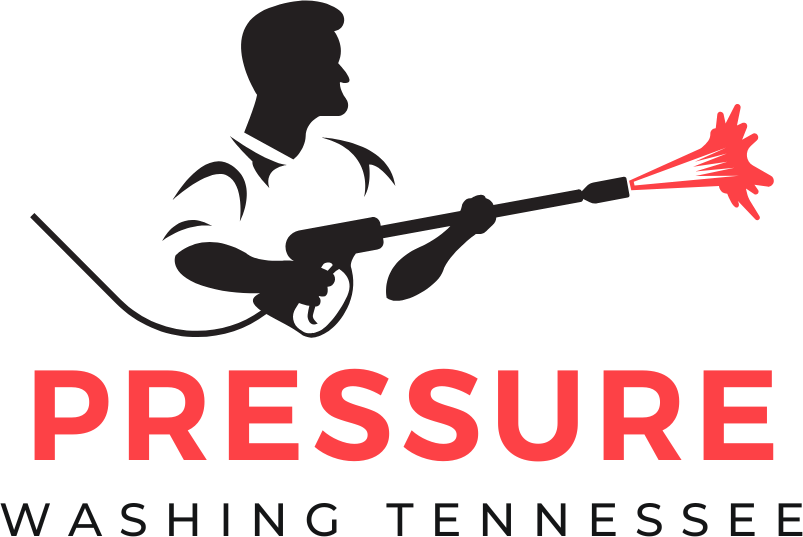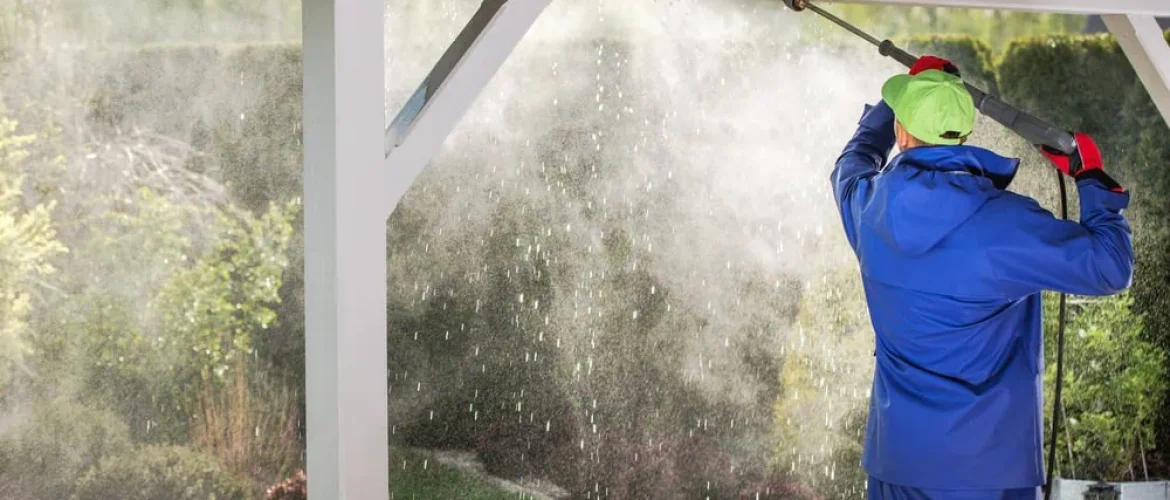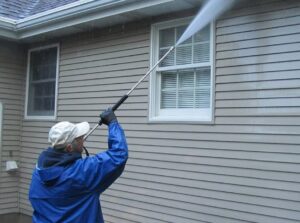Living in Tennessee means I’m no stranger to sticky summers and muggy mornings. That thick humidity doesn’t just make the air feel heavy—it actually speeds up the grime and mold that cling to my home’s exterior. I’ve learned that pressure washing isn’t just a seasonal chore here. It’s a vital part of keeping my property looking sharp and protecting its value.
If you want your home to stand out and stay in top shape, knowing when and how often to schedule pressure washing makes all the difference. I’ll show you why Tennessee’s unique climate demands a smarter cleaning routine—and how the right timing can save you money and headaches down the road.
Understanding Tennessee’s Humidity Levels
Humidity in Tennessee ranks high for much of the year. Average relative humidity hits between 68% and 75%, with numbers peaking from May through September. Summers feel especially damp, making outdoor surfaces vulnerable to moisture-loving growths. Towns like Memphis, Nashville, and Knoxville often see thick morning fog and lingering afternoon stickiness. These moisture conditions don’t just appear in the summer; mild winters keep the air damp and surfaces less likely to dry out quickly.
This persistent humidity means exterior surfaces—like siding, decks, and driveways—trap more moisture and invite faster grime buildup. Algae, mold, and mildew grow faster when surfaces can’t stay dry for long. I often notice dark green stains and slippery patches after just a few weeks of warm, wet weather. Homes close to rivers, lakes, or dense tree cover deal with even higher moisture buildup.
Regional climate data from the National Weather Service and the University of Tennessee backs up these observations. Records show average daily humidity stays above 68% for at least nine months of the year. These high moisture levels demand careful planning for exterior cleaning and maintenance.
The Science Behind Humidity and Surface Contaminants
Tennessee’s humidity makes it easy for outdoor surfaces to attract and hold moisture. Warm, damp air speeds up the buildup of residue that can damage siding, wood, and concrete over time.
How Moisture Fuels Mold and Mildew Growth
Mold and mildew need moisture to thrive, and high humidity gives them the right environment. These fungi spread quickly after rainy days, especially on shaded surfaces or hidden spots where air doesn’t flow. I notice green or black patches appear faster on homes in the summer, making regular cleaning necessary just to keep up.
Effects on Different Types of Exterior Surfaces
Humid air impacts various materials differently:
- Vinyl siding: Mildew and algae collect in seams and grooves, creating streaks that stand out on lighter colors.
- Wood decks and fences: Persistent dampness causes not just staining but can lead to soft, rotting boards if left untreated.
- Concrete driveways and walkways: Dark, slippery algae patches form in spots where water pools, increasing the risk of stains and falls.
- Brick and masonry: Porous surfaces soak up moisture, letting mold settle deep into the tiny cracks between bricks or stones.
I target trouble areas more often during humid months and focus on the materials that trap moisture first. This helps keep each surface cleaner for longer, even when humidity stays high.
How Tennessee’s Humidity Impacts Pressure Washing Schedules
Tennessee’s high humidity brings unique cleaning challenges to outdoor surfaces. I notice this constant moisture lets grime, mold, and algae build up much faster than in drier regions.
Seasonal Variations and Cleaning Frequency
In Tennessee, cleaning schedules shift with the seasons. During spring and summer, humidity often peaks above 70%, so grime and biological growth spread quickly. I find that pressure washing every three to four months keeps surfaces clear in these damp periods. Fall and winter usually bring lower humidity, so exterior cleaning needs drop to twice a year unless rainy stretches cause another buildup.
Signs That Surfaces Need More Frequent Washing
Humidity often shows itself on surfaces before I even check the forecast. Dark streaks, green patches, or slippery spots on vinyl, wood, or concrete all tell me washing is overdue. Textured brick or stone sometimes traps musty odors, another sign the humidity’s lingering longer than usual. When these signs appear after just a few months, I know Tennessee’s climate is pushing my usual schedule—and it’s time to clean again.
Best Practices for Scheduling Pressure Washing in Humid Climates
Tennessee’s humidity calls for a thoughtful approach to pressure washing schedules. I focus on timing cleanings and using practical methods that keep my home’s exterior cleaner, longer, even though the persistent dampness.
Choosing the Optimal Time of Year
Early spring and late summer offer the best balance for pressure washing around Tennessee. I’ve found that scheduling a deep clean right after peak pollen season, but before summer’s humidity spikes, helps remove residue before it anchors in. Another session at the tail end of summer clears away mold and algae that thrive from May through September. For homes in areas with dense tree cover or near water, I target times after heavy rains, since buildup appears more rapidly in these microclimates.
Preventative Measures for Lasting Cleanliness
To reduce how often I pressure wash, I address common sources of grime. Trimming back bushes and trees limits shade and lets surfaces dry faster, slowing mold growth. I clear gutters every few months to prevent water from spilling down siding. Using mold-resistant cleaning solutions on decks and driveways, I extend the time between washes during humid seasons. Regular inspections help me spot new growth or slippery spots early, letting me spot-clean between full washes and preserve exterior surfaces longer.
Conclusion
Living in Tennessee means dealing with humidity almost year-round and that shapes how I approach pressure washing. Staying ahead of grime and mold isn’t just about keeping things looking sharp—it’s about protecting my investment and avoiding bigger headaches down the road.
By staying flexible with my cleaning schedule and paying attention to the signs of buildup I can make sure my home stays safe and attractive no matter how humid it gets. Proactive care always pays off in the long run.


